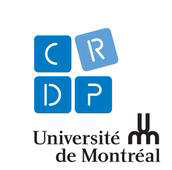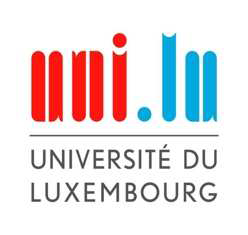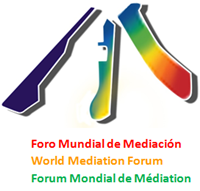Programs



TUESDAY 9 JULY, 2019 - Photo Gallery, click : here
7.30 – 8.30 WELCOMING
8.30 – 9.15 OPENING SESSION
Sir Claude Houssemand, President of the organizing committee
Sir Stéphane Pallage, Rector at the University of Luxembourg
Sir Félix Braz, Minister of Justice du Luxembourg, and Deputy Prime Minister
Sir Gian Piero Turchi, President of the World Mediation Forum
Hosting: Mylène Jaccoud (Canada)
9.15 – 10.45 FIRST ROUND TABLE
Benoît Bastard (France) - Masengesho Kamuzinzi (Rwanda) - Antonia Potter Prentice (Belgium)
IS MEDIATION A WAY TO PREVENT CONFLICTS?
In this roundtable, participants are invited to question the view that some observers and promoters of mediation have adopted toward it, namely, its ability - actual or potential - to prevent conflicts. Prevention is also associated with mediation to the point that it has generated a popular acronym: PSDs - the modes of the prevention and settlement of disputes. In addition, participants are invited to discuss the "new professions" of mediation that count now, especially in France: ‘agents of prevention and mediation’? Does mediation really prevent conflicts? Should this function be integrated with its spectrum of action? Does mediation actually prevent conflicts in all fields in which it is applied? What does it prevent? The escalation of the conflict? Its resurgence? Its judicialization? Is the inability of mediation to prevent conflicts a flaw or a limit of the approach? Does the presumed ability of mediation to prevent conflicts constitute the founding dogma of mediation or come from empirically grounded observations? These questions will allow the speakers to give their opinions on how mediation is related to prevention in order to understand its real and discursive scope.
10.45 – 11.15 COFFEE BREAK
11.15 – 12.45 WORKSHOPS: 1 → 7 WORKSHOPS' Program JULY 9th AM
12.45 – 14.00 LUNCH
14.00 – 15.30 SECOND ROUND TABLE
Dan Kaminski (Belgium) - George Pavlich (Canada) - Maria Paz Garcia Longoria (Spain)
IS MEDIATION A MODE OF REGULATION OR OF SECURING?
Should the scope of mediation be limited to conflict resolution, and therefore, should mediation be aimed at achieving the goal of ‘resolving’ these conflicts? Or should its focus be expanded to include ‘regulation’ by taking the risk of adding terminological ambiguities to an alternative mode that is still unstable? In recent decades, the term ‘securing’ has been added to the functions of mediation. However, securing has been discussed or even excluded from this mode of intervention. It is even brandished as a foil by some professionals of social intervention. If security issues require specific measures, we should ask ourselves whether mediation can and should play the role of securing. At the same time, it becomes necessary to better understand the issue of regulation in mediation while avoiding the two pitfalls of using a general and therefore imprecise terminology or a disciplinary confinement that nothing can conceptually justify.
15.30 – 16.00 COFFEE BREAK
16.00 – 17.30 WORKSHOPS: 8 → 15 WORKSHOPS' Program JULY 9th PM
18.30 COCKTAIL
WEDNESDAY 10 JULY, 2019 - Photo Gallery, click : here
8.00 – 8.30 WELCOMING
Hosting: Mylène Jaccoud (Canada)
8.30 – 10.00 THIRD ROUND TABLE
Fadhila Mammar (Spain) - Lydie Err (Luxembourg) - Michèle Vatz-Laaroussi (Canada)
WHAT ARE THE AMBITIONS AND REALITIES OF INTERCULTURAL MEDIATION?
So-called ‘intercultural’ mediation has become autonomous and institutionalized in a large number of countries as its own field of practice and knowledge. Despite this undeniable recognition, the challenges and unanswered questions in this field of mediation still need to be addressed. The participants at this roundtable will contribute to the debate on a practice whose methods, ambitions, and realities are multidirectional. What is the logic of action for intercultural mediation? Is it a logic of accompaniment to the integration of the minority groups in the host society? Is it a logic of construction of interculturalism or multiculturalism? Or is it a logic of conflict resolution of cultures and values or that of an intercultural and communicational translation? How should practitioners think about and practice intercultural mediation when the very notion of interculturality is complex? Is it conceived as a regulatory practice of the relations between majority and minority groups? Is it conceived differently in societies with migratory traditions than in postcolonial societies? As for societies characterized by the co-presence of indigenous people and migrants, how can intercultural mediation be thought of in a transcultural way? How do these different issues unfold in countries where intercultural mediation is not recognized as such?
10.00 – 10.30 COFFEE BREAK
10.30 – 12.00 WORKSHOPS: 16 → 23 WORKSHOPS' Program JULY 10th AM
12.00 – 13.30 LUNCH
13.30 – 15.00 WORKSHOPS: 24 → 30 WORKSHOPS' Program JULY 10th PM
15.00 – 15.30 COFFEE BREAK
15.30 – 17.00 CLOSING ROUND TABLE
Riccardo Cappi (Brazil) - Kaijus Ervasti (Finland) - Sharon Press (United States)
DOES THE INSTITUTIONALIZATION OF MEDIATION HELP TO REFORM INSTITUTIONS OR DOES IT DISTORT MEDIATION?
In this roundtable, speakers are invited to reflect on and decide what the specific relationship is between mediation (and its practices) and the institutional environment in which it takes place. While advocating for the complex nature of this relationship, as well as the many ways in which it can be viewed, we offer some questions that can help participants see the issue more clearly, both theoretically and practically. Is mediation conceived as part of the project of a given institution (e.g., a system of civil or criminal justice, or a subsystem thereof) or as something that is separate, independent, or even opposed to it? Is it proposed in a spirit of continuity, juxtaposition, integration, bifurcation, or rupture, in comparison with existing practices? Is the integration or, on the contrary, the separation of mediation from the traditional practices of the institution a founding principle of mediation, or does it result from the conditions of the implementation of mediation? Does the trajectory of the relationship between mediation and the institution ultimately lead to the reform of the institution or, rather, to the distortion of mediation? This list of questions is not exhaustive; it is supposed to help the speakers decide what the main issues are with respect to the relationship between mediation and institutions, both from a theoretical perspective and on the basis of empirical observations.
17.00 CONCLUSION
Mylène Jaccoud (Canada)



THURSDAY 11 JULY, 2019 - Photo Gallery, click : here
PRACTICAL WORKSHOP, with Liliana KREMER: Intercultural Mediation
This training is a theoretical and practical introduction to intercultural mediation. It is necessary to introduce a complementary look at our mediation practices to better understand and include the individual backgrounds of those involved in the process. Participants will also learn about the concept of interculturality, an essential resource concept for creating bridges between cultures and communities and for resolving conflicts rooted in misunderstanding, differences, or rejection of the Other. Several approaches to intercultural mediation will be presented to participants. The workshop will outline the main functions, techniques, and skills needed for intercultural mediation. The training uses interactive tools with the participants (role-playing, interactive cards, videos, PowerPoint, exchanges, etc.).
This practical workshop, in spanish, will be translated in french (morning - Group 1) and in english (afternoon - Group 2).
8.30 – 12.00 Group 1
13.30 – 17.00 Group 2
Half day training (morning or afternoon: 3,5 hours)
This content has been updated on 10 August 2019 at 10 h 37 min.
